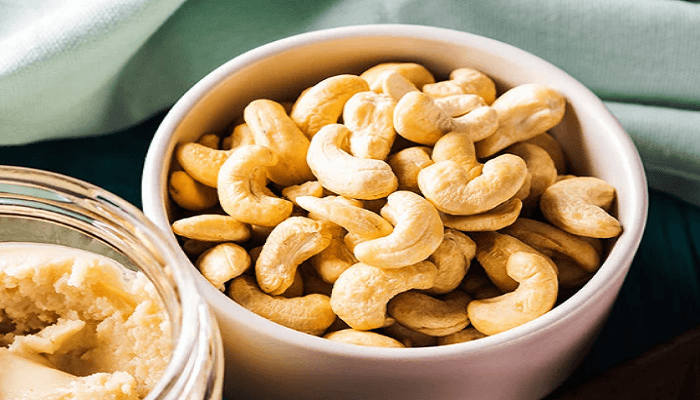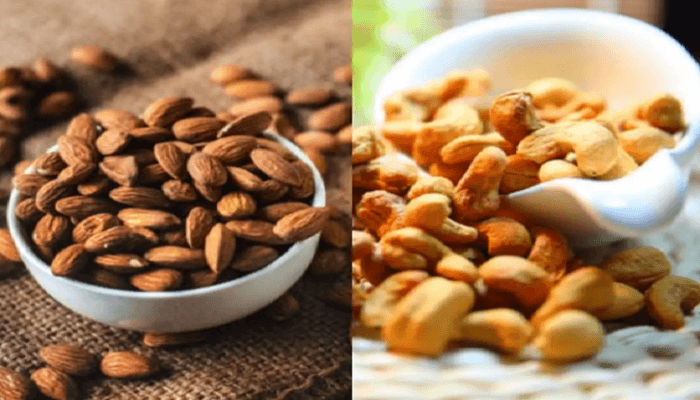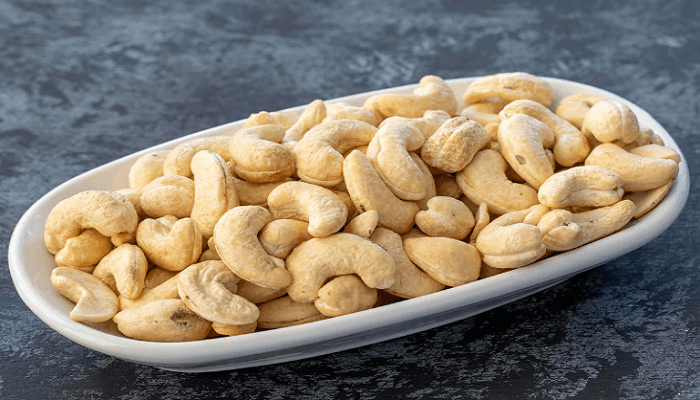Why Are Cashews so Expensive – Cashews are one of the most popular nuts in the world, known for their unique taste and buttery texture. But they are also notorious for being one of the most expensive nuts on the market. A pound of cashews can cost up to $15, while a pound of peanuts can cost less than $2.
This has led many people to wonder, “Why are cashews so expensive?” In this article, we will explore 11 reasons that explain the high price of cashews.
Reasons Why Are Cashews So Expensive
The Production Process
One of the main reasons cashews are so expensive is the production process. Unlike other nuts, cashews are not grown in a shell but instead grow outside of a fruit, which contains a toxic resin that can cause severe skin irritation.
This means that cashew farmers must carefully harvest the cashews by hand, which is a time-consuming and labor-intensive process.
The Cost of Labor
Because the harvesting process for cashews is so labor-intensive, the cost of labor is much higher than for other nuts.
Cashew farmers must employ workers to pick the cashews by hand, remove the toxic resin, and roast and package the nuts. This adds to the cost of production and ultimately makes cashews more expensive.
Supply and Demand
Another reason for the high cost of cashews is supply and demand. Cashews are in high demand around the world, particularly in countries like the United States, India, and China.
However, the supply of cashews is relatively low compared to other nuts.
Cashew trees are slow-growing, take up a lot of lands, and have a low yield compared to other crops, making them difficult and expensive to cultivate.
Processing and Packaging
The processing and packaging of cashews also contribute to their high price. After the cashews are harvested, they must be roasted, shelled, and packaged.
This process requires specialized equipment and skilled labor, which adds to the cost of production.
Transportation Costs
Transportation costs are another factor that contributes to the high price of cashews. Cashews are primarily grown in India, Vietnam, and Nigeria, which means they must be transported long distances to reach other parts of the world.
This requires fuel, transportation infrastructure, and labor, all of which add to the cost of cashews.
Export Duties
Some countries that produce cashews also impose export duties, which can drive up the price of the nuts. For example, India, one of the largest producers of cashews in the world, imposes a 9.36% export duty on raw cashews.
This increases the cost of cashews for buyers in other countries.
Quality Control
Cashews are delicate nuts and require careful handling to maintain their quality. This means that there is a high level of quality control required throughout the production process, from harvesting to packaging.
If the nuts are not handled properly, they can become contaminated, moldy, or rancid, which can make them unsuitable for consumption.
This level of quality control adds to the cost of production and ultimately the price of cashews.
Environmental Factors
Environmental factors also play a role in the high cost of cashews. Cashew trees require specific growing conditions, such as warm temperatures, high humidity, and well-draining soil.
These conditions are not found in all regions of the world, which limits the areas where cashews can be grown.
Climate change and deforestation can impact the growth of cashew trees, making it more difficult to produce high-quality nuts.
Health Benefits
Cashews are not only delicious but also offer numerous health benefits. They are a good source of healthy fats, protein, and minerals like magnesium, zinc, and copper. This high nutritional value can also contribute to the high cost of cashews.
When compared to other nuts, such as peanuts or almonds, cashews have a higher concentration of nutrients, making them a more desirable and valuable food item.
Organic and Fair Trade Certifications
Some cashew farmers choose to pursue organic and fair trade certifications, which can increase the cost of production. Organic certification requires farmers to use organic farming practices, which can be more expensive than conventional methods.
Fair trade certification requires farmers to adhere to fair labor practices, which may require additional monitoring and oversight.
These certifications can increase the cost of cashews, but they also ensure that farmers are paid fairly and that the nuts are produced in an environmentally sustainable and socially responsible way.
Processing Losses
Another factor that contributes to the high cost of cashews is processing losses. Cashews have a thick outer shell that must be removed before the nut can be consumed. During this process, some nuts can become damaged or broken, reducing the overall yield.
This means that more cashews must be harvested and processed to produce the same amount of edible nuts, which drives up the cost of production.
Marketing and Branding
Finally, marketing and branding can also contribute to the high cost of cashews. Many companies that sell cashews use premium packaging, attractive branding, and targeted marketing to position their product as high-end, premium items.
This can increase the perceived value of cashews and justify a higher price point.
Why Are Cashews More Expensive Than Peanuts?

Cashews are more expensive than peanuts for several reasons. Firstly, cashews are much harder to harvest and process than peanuts.
The cashew tree produces a fruit that contains a toxic resin that must be removed before the nut can be consumed, making the harvesting process more labor-intensive.
Cashews have a much lower yield per tree than peanuts, making them more difficult and expensive to cultivate. Finally, cashews have a higher nutritional value than peanuts, making them a more desirable and valuable food item.
What is Better for You, Almonds or Cashews?

Both almonds and cashews are healthy nuts that offer numerous health benefits. However, there are some differences between the two.
- Almonds are slightly lower in calories and fat than cashews but contain more fiber and protein.
- Cashews, on the other hand, are higher in minerals like magnesium, zinc, and copper.
Ultimately, both almonds and cashews are nutritious choices, and the best one for you will depend on your specific nutritional needs and preferences.
Are Walnuts or Cashews Better for You?
Both walnuts and cashews are healthy nuts that offer numerous health benefits.
- Walnuts are higher in omega-3 fatty acids, which are important for brain and heart health.
- Cashews, on the other hand, are higher in minerals like magnesium, zinc, and copper.
Both walnuts and cashews are nutritious choices, and the best one for you will depend on your specific nutritional needs and preferences.
Conclusion
In conclusion, there are several reasons why cashews are so expensive. Firstly, cashews are difficult and labor-intensive to harvest and process. Additionally, cashews have a low yield per tree and are more susceptible to pests and disease than other nuts, making them more difficult to cultivate.
Furthermore, cashews have a high nutritional value and are often produced using organic and fair trade certifications, which can increase the cost of production.
Finally, marketing and branding can also contribute to the high cost of cashews.
Despite their high cost, cashews are a nutritious and delicious food item that offers numerous health benefits.
They are high in healthy fats, protein, and minerals like magnesium, zinc, and copper. Additionally, they can be used in a variety of dishes, from savory meals to sweet desserts.
If you are looking for a more affordable alternative to cashews, peanuts or almonds may be a good choice. While they have a slightly different nutritional profile, they are still healthy and delicious nuts that offer numerous health benefits.
Overall, while cashews may be more expensive than other nuts, they are a valuable and nutritious food item that can be enjoyed in moderation as part of a healthy diet.
